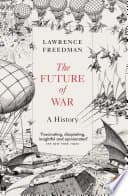Understanding Modern Warfare: The Influence of Technology and Global Politics
Explore how technology and global politics have redefined modern warfare, making it complex and unpredictable.

Books Featured in This Article
Explore the books discussed

Understanding Modern Warfare: The Influence of Technology and Global Politics
Modern warfare has evolved significantly, mainly due to the advent of new technology and shifts in global political dynamics. Today, conflicts are more complex and multifaceted than ever before. This transformation stems from several critical factors that shape modern combat, notably technology and international relations.
Technology at the Helm of Warfare
The influence of technology on modern warfare cannot be overstated. Technological advancements have changed the battlefield, introducing new tools and methods for conducting war. Drones and cyber warfare have revolutionized military strategies, providing new capabilities for surveillance, attack, and defense. While these technologies make warfare more precise, they also add elements of unpredictability.
Drones and cyber warfare mark a significant departure from traditional combat methods, emphasizing the precision and scope of modern conflicts.
Take, for instance, the use of drones. These unmanned aerial vehicles can carry out missions that would typically require a fleet of manned aircraft, all while keeping human lives out of immediate danger. They are employed for both surveillance and targeted strikes, changing the very nature of reconnaissance and tactical offensive operations.
Meanwhile, cyber warfare opens another front in modern conflicts. Governments and organizations now have the means to disrupt enemy infrastructure without a single shot being fired. From hacking into secure communication systems to disabling power grids, cyber warfare introduces a silent yet potent battleground.
The Global Political Landscape
Equally influential in shaping modern warfare is the role of global politics. International relations and political alliances determine many aspects of military operations, from the deployment of troops to the choice of conflict itself.
Understanding international relations is crucial for comprehending the complexities of modern warfare, as alliances and political decisions heavily influence military strategies.
For instance, the deployment of peacekeeping forces often hinges on multilateral agreements and diplomatic negotiations. Such decisions can make or break an operation, as seen in numerous global conflicts where the presence or absence of international support dramatically impacted outcomes.
Moreover, political decisions around logistics, supply chains, and military funding play critical roles. Sophisticated strategies are planned with the logistics of supply lines and troop rotations in mind, ensuring that military operations can be sustained over long periods.
Future Trends in Warfare
Speculating about the future of warfare, grounded in current realities, offers invaluable insights into how we can anticipate and prepare for emerging threats. As technology continues to evolve, so will its applications in military contexts.
Anticipating the future of warfare allows us to prepare for emerging threats and adapt strategies accordingly, ensuring preparedness for what lies ahead.
Consider the potential impact of artificial intelligence and robotics. These technologies could further revolutionize combat, introducing autonomous systems capable of making real-time decisions on the battlefield. The ethical and practical implications of such advancements are profound, and understanding them today can inform better decision-making tomorrow.
For those seeking to delve deeper into these topics, one highly recommended read is The Future of War: A History by Lawrence Freedman. This book offers comprehensive insights into the evolution of warfare, meticulously analyzing both historical and contemporary elements to forecast future trends.
A Comprehensive Resource
The Future of War: A History by Lawrence Freedman is an indispensable resource for anyone looking to grasp the depth of changes in modern warfare. Freedman's work demystifies the intricate interplay of technology, politics, and combat, making the complex understandable.
The Future of War: A History by Lawrence Freedman demystifies the intricate interplay of technology, politics, and combat, making the complex understandable.
In conclusion, comprehending modern warfare requires an appreciation of both technological innovations and the complexities of global political dynamics. By understanding these elements, one can better anticipate future trends and navigate the convoluted landscape of contemporary conflicts.
Key Takeaways
Pros
- Technological advancements make warfare more precise.
- Drones reduce the risk to human life by performing surveillance and targeted strikes without manned aircraft.
- Cyber warfare allows strategic disruptions without physical combat.
- Understanding international relations can help navigate and influence the success of military operations.
- Future predictions on warfare can help prepare for and mitigate emerging threats.
- Books like 'The Future of War: A History' provide well-researched insights into the complexities of modern combat.
Cons
- Technological advancements in warfare can add elements of unpredictability.
- Cyber warfare introduces new vulnerabilities and potential for non-physical yet significant damage.
- Political decisions around troop deployment and logistics can complicate military operations and outcomes.
- Future trends like AI and robotics pose profound ethical and practical implications.
Frequently Asked Questions
About the Author

Book Junkie
Your go-to source for book reviews and recommendations.
You Might Also Like
Related Books
Related Articles

Transformative Reads for Teens: Navigating Life at 17
Discover the power of literature with our curated list of essential books for 17-year-olds. From fiction that inspires self-discovery to empowering non-fiction, these reads provide guidance and comfort during the tumultuous teen years. Uncover the wisdom

Unlocking the Secrets of Dark Academia: A Must-Read List
Dive into the enchanting realm of dark academia with our curated list of gripping novels that explore obsession, psychological intricacies, and haunting atmospheres. Perfect for readers seeking literary adventures akin to films like *Kill Your Darlings* a

Unlocking New Chapters: Inspiring Books for Readers in Their 50s
Discover a curated list of transformative fiction and non-fiction books designed for readers in their 50s. Embrace change, find inspiration, and celebrate life's possibilities with these insightful reads.

Unlocking the Secrets of Monastic Life: 12 Novels Rich in Religious Intrigue
Dive into the captivating world of ancient monasteries and religious power struggles through our curated selection of novels. Discover tales that will enrich your understanding of history while satisfying your love for literary intrigue.



